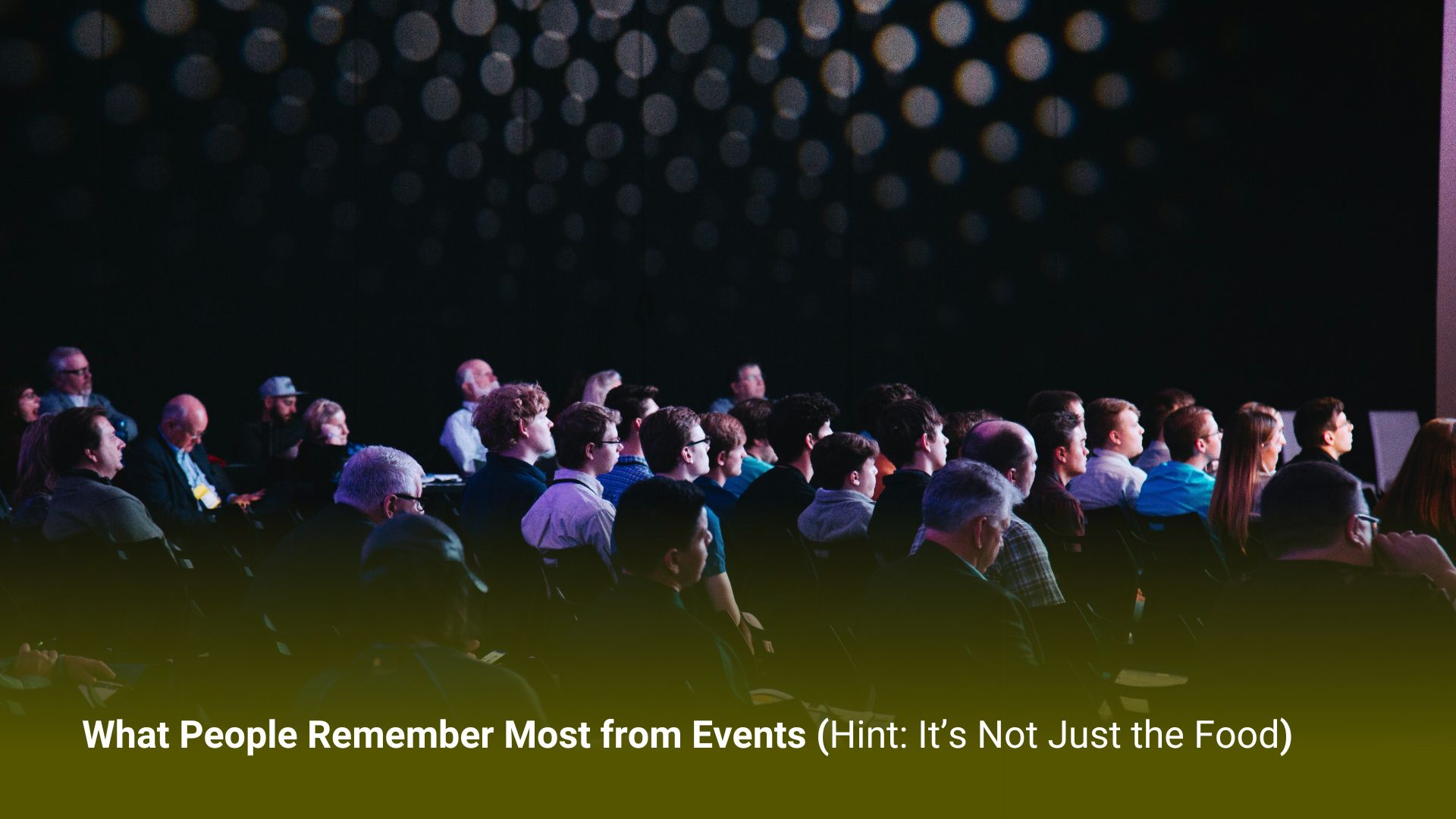What People Remember Most from Events (Hint: It’s Not Just the Food)

Engaging, curiosity-driven. Highlights importance of vibe, flow, and comfort. Relatable for brands and planners.
When planning an event—whether it’s a corporate seminar, a brand launch, a fashion show, or a team offsite—most organizers fixate on a few common elements: the food, the schedule, the speakers, the decor. But ask attendees a week, a month, or a year later, and you might be surprised to find what truly left a lasting impression.
Hint: it’s not just the food.
In a world where every brand is fighting for attention and recall, what guests remember most about events often goes beyond the menu or the program. They remember how they felt, what the vibe was like, and whether they were engaged, seen, and comfortable.
Let’s break down the psychology of unforgettable events—and what truly lingers in the minds of your guests long after the applause fades.
1. The First 30 Seconds: Atmosphere is Everything
The moment someone walks into your event space, their brain goes into sensory overdrive. Is it welcoming? Is it intimidating? Is it exciting? The lighting, the sound, the scent, the layout—they all whisper messages about the event, even before a single word is spoken.
First impressions are formed in under 30 seconds, and they set the tone for the rest of the experience.
"I walked in and instantly felt energized," is a compliment you want to aim for.
2. Comfort & Flow: People Remember How Easy It Was
Too often, planners overlook comfort and accessibility. Think about it:
-
Were the seats too close or too far?
-
Was there enough room to move, stand, or stretch?
-
Were the washrooms clean and easy to locate?
-
Did the check-in process feel smooth and thoughtful?
Guests subconsciously log every small hassle. They won’t remember the font on the invite, but they will remember how annoying it was to find the registration table or how cold the room felt during the keynote.
Pro tip: Great events feel effortless.
3. Engagement Over Entertainment
Gone are the days when events were one-way monologues. Today, attendees crave interactivity. Whether it's a poll during a talk, a workshop they can join, or just time to network with others, they want to be part of the story—not just an audience.
According to EventMB, 91% of attendees say engagement is a top factor when deciding whether an event was successful.
The best events don’t entertain guests. They involve them.
4. Design that Tells a Story
Visual storytelling plays a massive role in memory retention. A photo booth, mood lighting, unique installations, or a creatively designed seating layout can elevate an event from ordinary to iconic.
Think: Are people taking photos because they want to, or because they have to?
When your venue becomes a backdrop for selfies, reels, and impromptu moments, you’re not just hosting an event—you’re enabling content creation and organic reach.
5. Senses Sell the Memory
Memories are multisensory. While food and drink are powerful (and should never be ignored), what surrounds them matters more.
-
The smell of fresh flowers or subtle room fragrance
-
A playlist that subtly changes energy levels throughout the day
-
Mood lighting that adapts with time
-
Comfortable, ergonomic seating
All these details don’t shout, but they stick.
6. Personal Touches Go a Long Way
People remember moments where they felt personally seen:
-
A welcome message with their name
-
A thoughtful gift
-
A surprise element that wasn’t on the agenda
-
A chance to share feedback or a story
Connection creates impact. Make the experience feel curated, not cookie-cutter.
7. The Exit: How It Ends Matters
Many events start strong but fizzle out. But the way an event ends is what often cements its memory.
-
Was there a final powerful message or emotional moment?
-
Was the closing smooth and celebratory?
-
Did people leave feeling fulfilled—not fatigued?
Last impressions are as powerful as first ones.
Send guests home with more than a thank-you bag. Send them with a story.
8. The Post-Event Echo: What They Share
In today’s social-first world, the true success of an event is how much buzz it generates after it ends.
-
Are people sharing quotes, pictures, or behind-the-scenes moments?
-
Is there a hashtag that actually caught on?
-
Did the event give attendees something meaningful enough to repost?
The longer the post-event conversation lives, the more memorable your event becomes.
Final Thoughts: Don’t Just Host. Curate.
Events are not about filling a room. They’re about filling minds and memories.
Your guests may forget the dessert served, but they will never forget:
-
How they felt in the space
-
Who they connected with
-
What made them smile, think, or feel seen
Designing unforgettable experiences starts with understanding that people don’t just attend events—they experience them.
So next time you’re planning a gathering, ask yourself:
"What will they remember one year from now?"
If you focus on the right details, the answer won’t just be the food.
